Last Updated on June 24, 2019 by Ellen Christian
Safety tips for cold weather hiking aren’t the same as for the warmer months. While I enjoy hiking year round, cold weather hiking is more of a challenge for me. With my asthma, cold air can be a trigger, so that’s one thing that I need to be aware of while I’m hiking. This post has been sponsored, but the story is my own.
Posts may be sponsored. This post contains affiliate links, which means I will make a commission at no extra cost to you should you click through and make a purchase. As an Amazon Associate I earn from qualifying purchases.
Safety Tips for Cold Weather Hiking
Living in rural Vermont, there’s no end to beautiful places that I can hike. We live on two wooded acres of property so sometimes I just head out into the back yard and start hiking up the hill into the woods. When I want a more structured hike, we live about two miles from the Delaware and Hudson Rail Trail which is an official hiking trail that borders an old railway line.
Either way, I follow these safety tips for cold weather hiking while I’m out:
- Always tell someone where you’re going. Never go off on an adventure without leaving a note that others will see or telling someone specifically where you’re going.
- Choose your destination carefully. During the winter, you need to consider things like avalanches that aren’t an issue during the warmer months.
- Wear the right clothing. In the colder months, it’s important that you layer your clothes. Choose materials like wool or polypropolene that will wick moisture away from your body. Make sure you have insulated, waterproof hiking boots.
- Remember a flashlight. There is a lot less sunlight in the winter and it will get dark quicker. Remember to bring a flashlight when you go even if you think you’ll be back before it gets dark.
- Bring extra food. You need food for energy and you will burn more energy when it’s cold trying to stay warm. Remember to bring granola bars, trail mix, energy bars or even just nuts, seeds and dark chocolate.
- Consider an emergency shelter. While you may not think you need a sleeping bag or emergency shelter, it can be a life saver if you’re stuck out overnight because you get lost.
- Don’t overestimate your abilities. Cold weather hiking is more difficult. If there is snow or ice on the ground, that makes it even harder than just the cold weather alone. Start with a short hike.
- Lots of water. Water is important on any hike but even more so in the winter. You will be burning up a lot more energy in the cold weather and it’s important to stay hydrated. Cold, dry air also dehydrates you a lot quicker. Every time you stop to rest or admire the scenery, drink water.
Choosing a water bottle for cold weather hiking is important. You don’t want to be out on your hike and have your water bottle leak or break. Not only will you be without water, you run the risk of ruining your supplies.
I’m using a “Milestone” Filtered Water Bottle that’s made of high-quality Eastman Tritan™ plastic. It’s leakproof and durable enough to work for my active lifestyle. I accidently dropped it while hiking and it bounced off a rock and didn’t break or leak at all! Plus, it doesn’t scratch, leak, or retain odors or stains!
For added convenience, this water bottle also features a carrying loop and a straw that folds out of the lid for heads-up drinking on the go. I can attach it to my backpack or my belt loop with a carabiner for hands-free hiking.
The “Milestone” Filtered Water Bottle is also BPA-free which is extremely important to me. It has a water filter that is made from all natural, coconut-shell carbon that filters about 40 gallons of water before it needs to be changed.
If you’re heading out in the summer for a hike, check out my day hiking gear list.

Ellen is a busy mom of a 24-year-old son and 29-year-old daughter. She owns six blogs and is addicted to social media. She believes that it doesn’t have to be difficult to lead a healthy life. She shares simple healthy living tips to show busy women how to lead fulfilling lives. If you’d like to work together, email info@confessionsofanover-workedmom.com to chat.

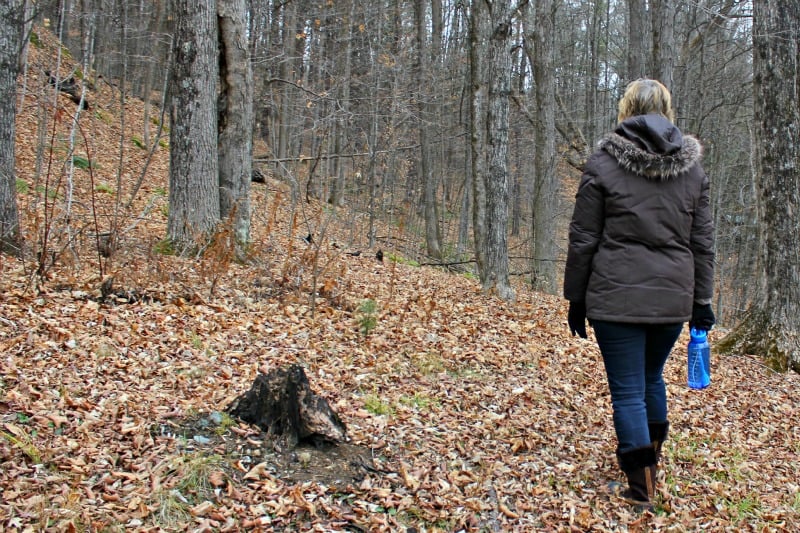
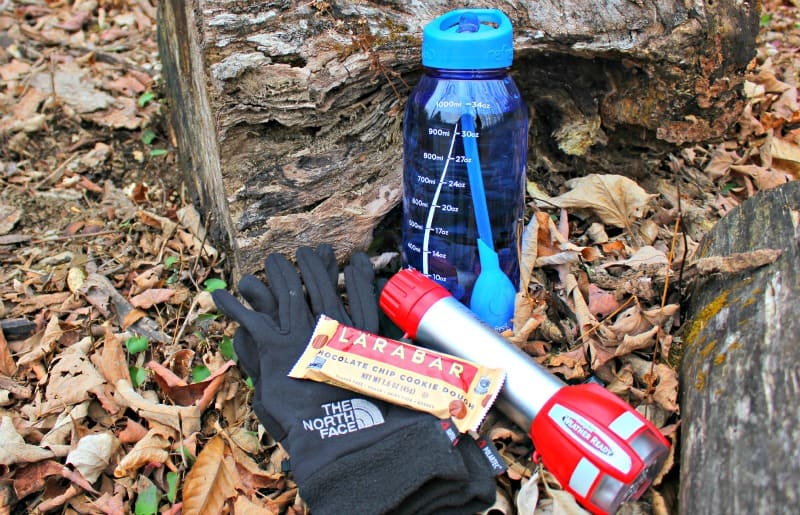
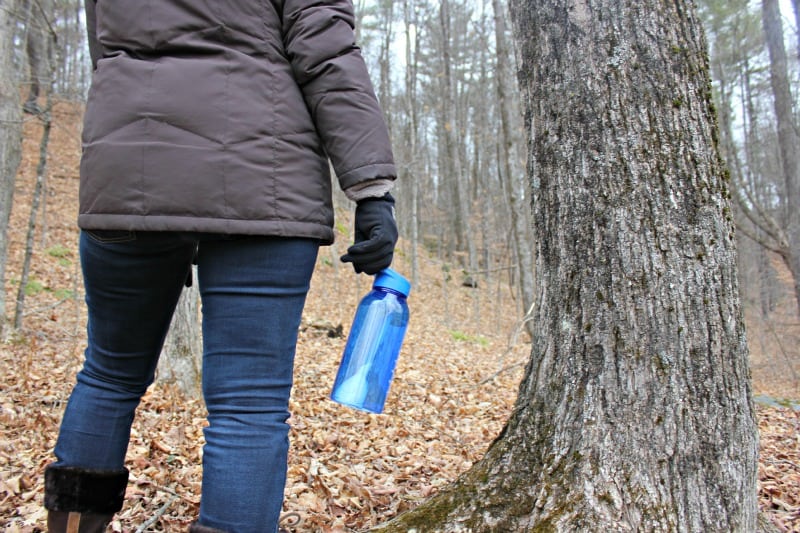
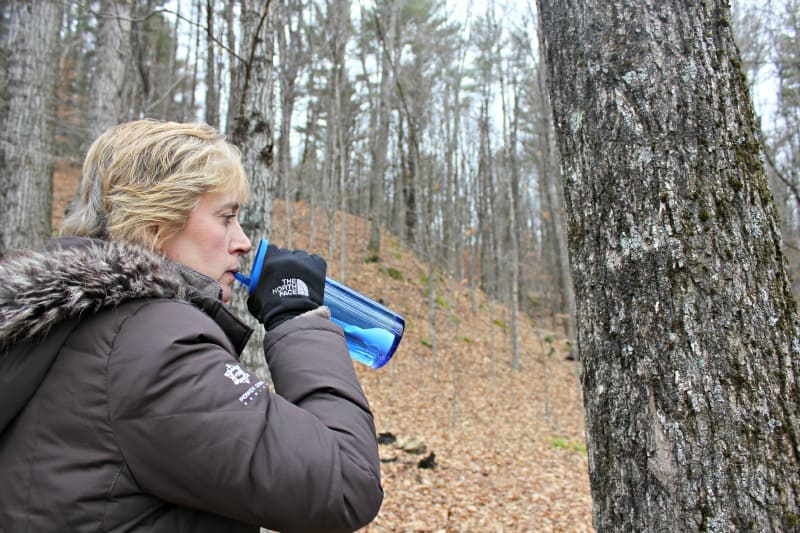
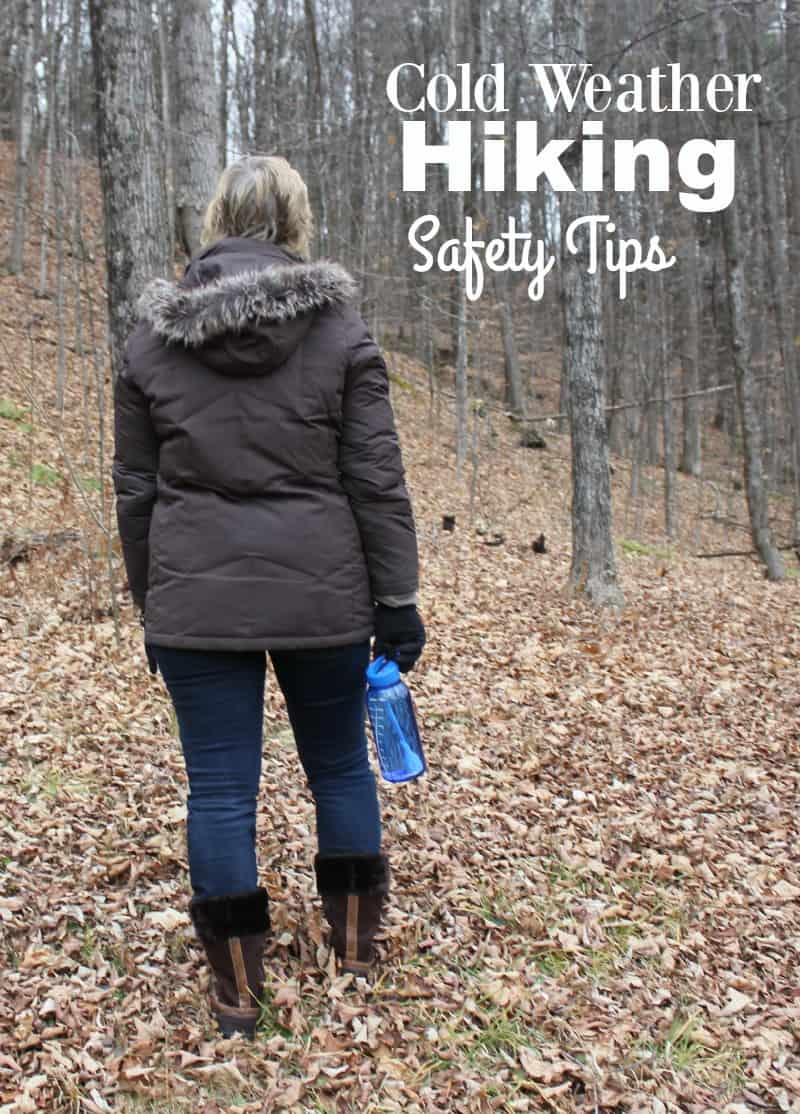
8 thoughts on “Safety Tips for Cold Weather Hiking”